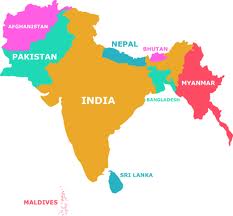Washington: South Asia faces a series of internal and external shocks during the next 15-20 years with India alone in a better position to face them thanks to its higher growth, according to a new US intelligence assessment.

“Conflict could erupt and spread under numerous scenarios,” says the fifth instalment in the US National Intelligence Council’s series aimed at providing a framework for thinking about the future released here Monday.
“Conflicting strategic goals, widespread distrust, and the hedging strategies by all the parties will make it difficult for them to develop a strong regional security framework,” it said.
“Low growth, rising food prices, and energy shortages will pose stiff challenges to governance in Pakistan and Afghanistan,” the report said.
“Afghanistan’s and Pakistan’s youth bulges are large – similar in size to those found in many African countries. When these youth bulges are combined with a slow-growing economy, they portend increased instability,” it noted.
However, “India is in a better position, benefiting from higher growth, but it will still be challenged to find jobs for its large youth population. Inequality, lack of infrastructure, and education deficiencies are key weaknesses in India,” it said.
An increasingly multipolar Asia lacking a well-anchored regional security framework able to arbitrate and mitigate rising tensions would constitute one of the largest global threats, the report said.
“Fear of Chinese power, the likelihood of growing Chinese nationalism, and possible questions about the US remaining involved in the region will increase insecurities,” it suggested.
“An unstable Asia would cause large-scale damage to the global economy. Changing dynamics in other regions would also jeopardize global security,” it said.
The Middle East, South Asia, and Sub-Saharan, which start from a relatively low base of economic and political gender parity, will continue to lag other regions, it said. Several regions – the Middle East and South Asia – appear particularly susceptible to outbreaks of large-scale violence despite the costs to themselves and others, the report said.
– IANS
The opinions, beliefs and viewpoints expressed by authors, news service providers on this page do not necessarily reflect the opinions, beliefs and viewpoints of Hill Post. Any views or opinions are not intended to malign any religion, ethnic group, club, organization, company, or individual.
Hill Post makes no representations as to the accuracy or completeness of any information on this site page.



